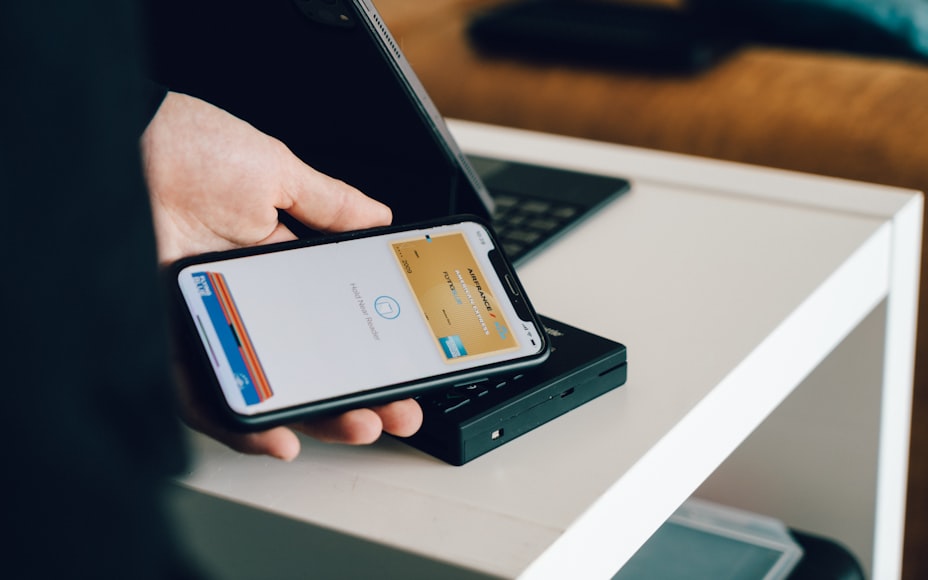It can be confusing to decide what to do with your money, especially if you’re just starting out. Before you forget that you now have responsibilities and go into a Shopee spending spree (again), here are seven things you gotta do with your salary.

Your First Paycheck
If your first paycheck is already within your grasp (or soon would be) then before everything else; congratulations!
It sure wasn’t easy, getting to this milestone. Even the best of us have faced difficulties, whether it was relationship problems, poverty, or physical illness – all made worse by a worldwide pandemic, to boot!
That’s why if you’re just receiving your very first salary, this is our advice: don’t sweat it.
Spend your first salary how you wish, whether buying something you’ve always wanted or eating something nice. Buy gifts for your family, friends, loved ones, and people who’ve helped you along the way. As long as you don’t go into debt, you’re good.
These moments are once in a lifetime, the beginning of a new chapter in your life. You deserve to celebrate it freely if you can – especially in these uncertain days. The rest of your life will bring enough problems.
Don’t get used to it, though. The best things might deserve to be celebrated, but life isn’t all about celebrations. Now that you’re an earning adult, you have more responsibilities, the least of which is managing your own money.
That’s why for your next paycheck, definitely do these seven things:
1. Budget it!

Budgeting is a crucial skill that will increase in value the more you go through life.
A budget is a framework; a plan on how you’ll spend your money. But it’s more than that: because you’re not just planning for the hell of it; you’re planning to maximize the resources that you have.
In other words, budgets aren’t there to choke you into a lifestyle that you don’t want; it’s there to help you achieve the lifestyle that you do want. A budget is an ideal spending pattern; how you would want to spend your money if you could do everything perfectly.
How should you budget?
When budgeting, prioritization is key. Put your essentials on top of the list; the kind that would make your life more miserable if you don’t pour some money into it. Your electricity, water, and internet bills go here. So should your groceries, commute… you get the idea.
As long as you’ve got that covered, then you should be mostly fine. The rest of the article will determine what you should do with the money that’s leftover after this step.
There’s more to it than just that, of course. We talk all about budgeting in this Ultimate Guide.
2. Invest in Your Retirement Plan
You simply have to invest in your retirement plan as soon as you can.
This might not make much sense while you’re still in your 20s — after all, your retirement is decades away. But that’s exactly why you should be saving up for retirement now: the sooner you start, the more retirement savings you’ll have.
If you have a mindset of “I’ll do it next year,” you’re guaranteed to delay forever. And then next thing you know, you’ll be 60 years old, retiring next year, and buried in a mountain of debt.
The good news is, if you work in the government or in a private organization, you’ll automatically be linked to an institutionalized plan (SSS and GSIS). These plans automatically deduct from your wages, so you won’t have to manually deposit money. On the other hand, if you’re a self-earning individual, then you’ll have to wait until the next step to do so.
Having an SSS or GSIS account is a good start — but it’s not enough, especially if you plan to enjoy this part of your life. Learn more about retirement planning on this Ultimate Guide.
3. Different Accounts

After you automatically put money in your retirement account, chances are you’ll have a bank account where your salary will land. This is your main bank account and from here you have the most control over your resources.
This is the step where most Filipinos end their financial planning. From their main bank account, they withdraw money for utilities, food, and for going out. This makes it very difficult to track your expenses and makes it much easier to overspend.
Having different bank accounts for different purposes will make things easier for you to handle. Based on the budget that you did on step 1, you should have a different bank account for necessities, wants, investments, your ETF, you get the idea.
This way, you make it more difficult for yourself to overspend, and it’s easier to keep track of your transactions. The next four items will detail the different accounts that you have for different things.
4. Necessities
You need to have a bank account specifically for your monthly necessities. As detailed in step one, these are expenses that would reduce your quality of life if not taken care of. Utility bills, rent, groceries, etc. fall under this category.
Your bills shouldn’t take up more than 50% of your take-home pay, and the lower, the better. Granted, it’s pretty difficult to find the right balance, so if it’s you’re new to this you probably won’t get it down the first time.
It might be your first time living independently (yay!) and underestimate how much you spend on groceries (no yay). Salaries might be delayed, or you might have bigger bills than you thought. There are many factors that could derail you from your plan.
Nevertheless, the key is trial and error. Note what went wrong each month, and then correct it for the next. Eventually, you’ll strike the right balance.
5. Emergency Fund

Once you’ve nailed your long-term savings and necessities, your next priority should be your emergency fund (EMF), also called a rainy day fund. Set aside as much as you can for this to start, at least until you build the recommended three to six month’s worth of your salary.
Most Filipinos put off creating an emergency fund. A recent survey from eCompareMo has shown that as much as 71% of respondents didn’t have one. This is a dangerous position to be in, financially and physically.
An emergency fund, as the name might suggest, is a stash of money that you keep on hand for absolute financial emergencies. These emergencies could be something as ordinary as a delayed salary, or it could be something as major as the hospitalization of a loved one or yourself. Nevertheless, without an EMF, it will be difficult to get past any emergency without going into debt.
With a rainy day fund, you at least wouldn’t immediately go into debt whatever worst-case scenario you’ll face,
6. Debt Payoff or Investments
Your next priority should either be paying off your debt or building up your investments.
If you have significant amounts of utang, then you should focus on paying those off as much as possible. If you don’t, it can easily balloon and end up being more hassle than they’re worth down the road.
When paying off debt, you can either pay off the smallest debt first and build up to the largest (snowball method), or you can pay off the ones with the biggest interest rates first and work your way to the smallest (avalanche method).
On the other hand, if you’re one of the lucky few that doesn’t have to deal with any significant amount of debt, then definitely put money towards long-term investments. These investments are kind of in the middle of your EMF (which you need to keep accessible and close at hand) and your retirement fund (which you need to keep as far away from you as possible).
7. Spending Money

Here comes the fun part: after all of the difficult, responsible stuff has been dealt with, you should have some left to spend on whatever you want.
So, how much money will you have for fun every month?
Hopefully, you’ve already budgeted it all out from step one. But if not, then you simply have to add all your monthly expenses (items 2 to 6), and then subtract it from your take-home pay.
Hopefully, your calculator shows positive numbers. If not, then definitely consider reducing your expenses until that minus sign disappears. Whatever is left, you’re free to spend as you wish.
But it’s okay to fail sometimes.
In an ideal world, we’d be responsible for our money to make all seven things work. What’s more, we’d have enough money to be responsible about.
But alas, adulting life is neither so simple nor so pleasant. We won’t have enough money. We’ll forget. Bad things happen and demotivate us. In times like those, it’s important not to be hard on ourselves. It’s okay to fail, as long as we get back up, learn, and try again.
It’s also important to note that many Filipino’s incomes won’t be enough to put money towards all seven. In that case, step one (budgeting) is all the more important. Cover your necessities first, and then choose from the other five the most urgent item for your situation, and then cover that first.
You’ll face many challenges and road bumps, but whatever the case, you now know seven things you gotta do for your salary.









